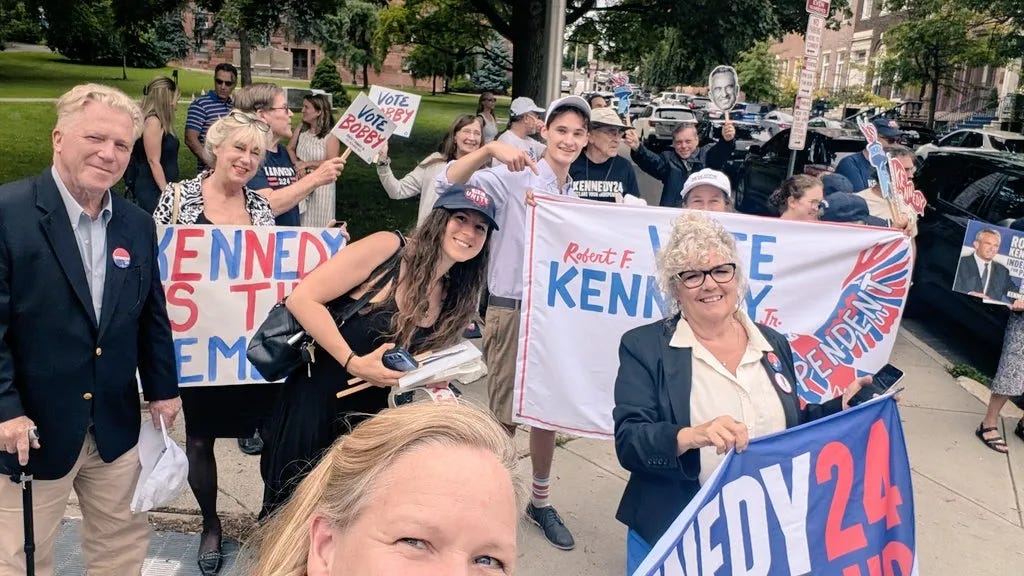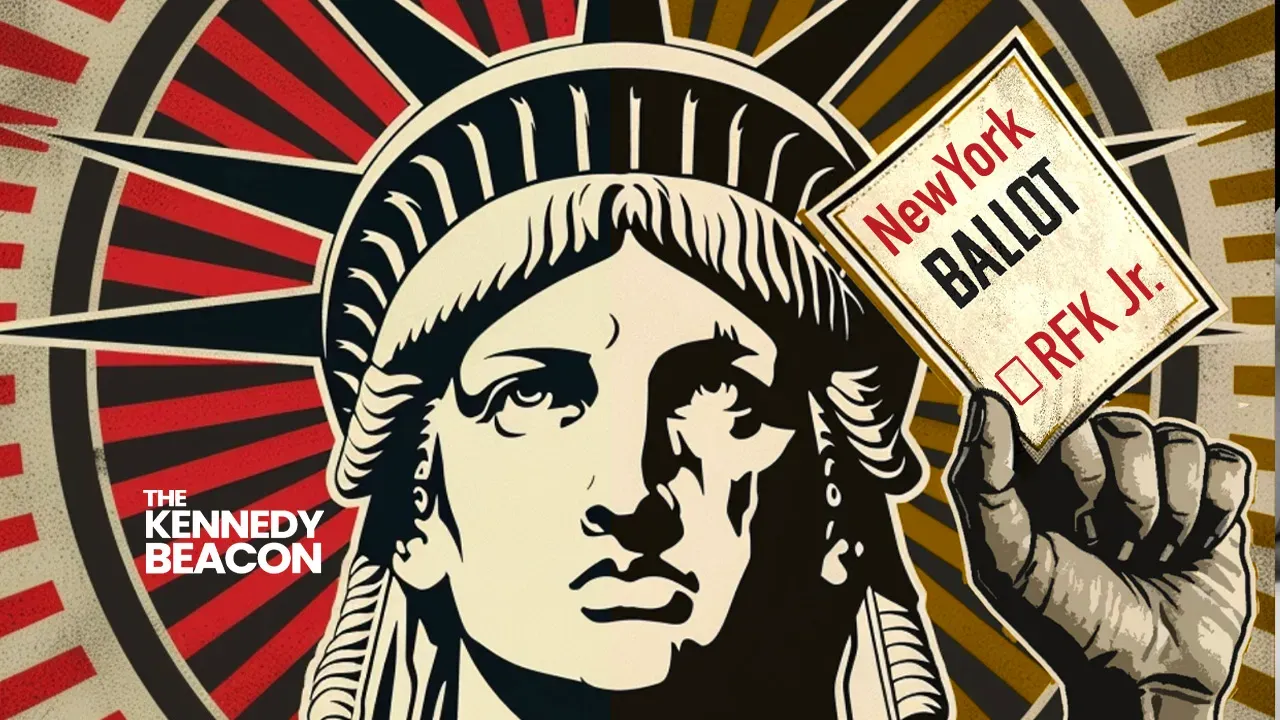Originally published by The Kennedy Beacon
Independent presidential candidate Robert F. Kennedy Jr. has announced he will challenge the New York State Supreme Court’s August 12 decision blocking him from appearing on the ballot, both on appeal and through a separate lawsuit arguing the state’s residency requirement is unconstitutional.
On May 28, the Kennedy campaign filed nomination petitions with the New York State Board of Elections containing more than 130,000 signatures – which, as reported by WXXI News, is “nearly three times the 45,000 requirement” to qualify for the ballot.
“This case is an assault on New York voters who signed in record numbers to place me on their ballot,” Kennedy wrote on X following the court’s decision. “The DNC has become a party that uses lawfare in place of the democratic election process. We will appeal and we will win.”
This case is an assault on New York voters who signed in record numbers to place me on their ballot. The DNC has become a party that uses lawfare in place of the democratic election process. We will appeal and we will win. 🇺🇸 https://t.co/D8rfIogIai
— Robert F. Kennedy Jr (@RobertKennedyJr) August 13, 2024
On August 12, Kennedy’s attorney Paul Rossi indicated in an evening press release that not only would the campaign appeal the ruling on its merits, but would also ask the federal court in the Southern District of New York to issue an injunction preventing Kennedy’s removal from the ballot. Rossi explained that the 12th Amendment to the Constitution establishes the eligibility criteria for presidential candidates – criteria which Kennedy and his running mate, Nicole Shanahan, meet.
One criteria in the 12th Amendment, called the Habitation Clause, states the president and vice president must “not be an inhabitant of the same state.” Kennedy argued during trial that the word “inhabitant” used by the founding fathers is a broader standard than “residency,” and therefore, New York law based on “residency” is an unconstitutional restriction on eligibility.
When Texas residents George W. Bush and Dick Cheney ran for the White House in 2000, Cheney successfully preempted Habitation Clause challenges by simply changing his voter registration to Wyoming, as reported at the time by ABC News. This precedent is favorable to Kennedy, who is registered to vote in New York; has his license to practice law in New York; has a New York driver’s license; and pays New York State taxes. These things are not true of Kennedy in California.
In other words, the laws are different in every state, which is a defense Kennedy plans to use. According to Kennedy in a discussion on X Spaces about the case, the State of New Hampshire’s ballot access code requires that residency must be listed on ballot petitions as where the candidate votes, which is and always has been New York. Kennedy had no choice but to claim New York as his residence, lest he be excluded from the ballot in New Hampshire.
Despite this clearly intolerable situation for candidates running for federal office, Justice Christina Ryba refused to address this argument, dismissing it as a “red herring.” It should be noted that Ryba was terminated from her previous position as a lawyer in the Supreme Court’s Appellate Division, 3rd Department for “ethical missteps,” having allegedly violated the court system’s rules against judges or candidates “engaging in inappropriate political activity,” per reporting from the Times Union.
“If state court judges are going to ignore the Constitution, the federal courts must step in to protect voters’ rights,” Rossi stated.

Meanwhile, the campaign has filed a separate lawsuit in federal court challenging multiple aspects of New York State election law on constitutional grounds, with the Green and Libertarian Parties of New York filing paperwork to join as co-plaintiffs earlier this month. Originally filed in May, the complaint argues that the state’s eligibility requirements for independent candidates are unconstitutional, including multiple arbitrary restrictions on petition signers and “the requirement to gather 45,000 valid signatures in just six weeks,” as summarized by Ballot Access News. It is anticipated that the campaign will file an amended complaint in this case in coming days adding the 12th Amendment claim explained above.
Recently, in Trump v. Anderson, the Supreme Court of the United States ruled that states could not prevent former President Donald Trump’s name from appearing on the ballot by invoking constitutional powers reserved for Congress. “The ruling warned of the dangers of a patchwork of decisions around the country that could send elections into chaos if state officials had the freedom to determine who could appear on the ballot for president,” as reported by NBC News.
The New York Supreme Court case is just one in a barrage of, arguably, politically motivated, frivolous ballot access cases across the country brought this presidential election cycle by the Democratic Party against its political opponents.
In Georgia, referring to the legal actions by Democrats to challenge third-party candidates such as Kennedy from appearing on the state’s ballot, the Associated Press reported, “It is part of a nationwide effort to block candidates who could siphon votes from Vice President Kamala Harris.”

So far, the state ballot challenges against Kennedy have been unsuccessful. State Democratic parties and Clear Choice Action, the super PAC established to remove minor parties and independents from the ballot nationwide, have challenged Kennedy in 15 states. Kennedy and team have won cases in eight of those states so far — as they continue their historic march to ballot access in all 50 states and the District of Columbia.
With over one million signatures collected to put Kennedy on the ballot, his campaign’s ballot access drive will likely change the political landscape, regardless of further state challenges and the result of the election.
Liam Sturgess is an investigative reporter for The Kennedy Beacon. He is also a writer for the Canadian Citizens Care Alliance and founder of White Rose Intelligence. He was the founding co-host and producer of the Rounding the Earth podcast, and publishes a Substack series called Microjourneys.
